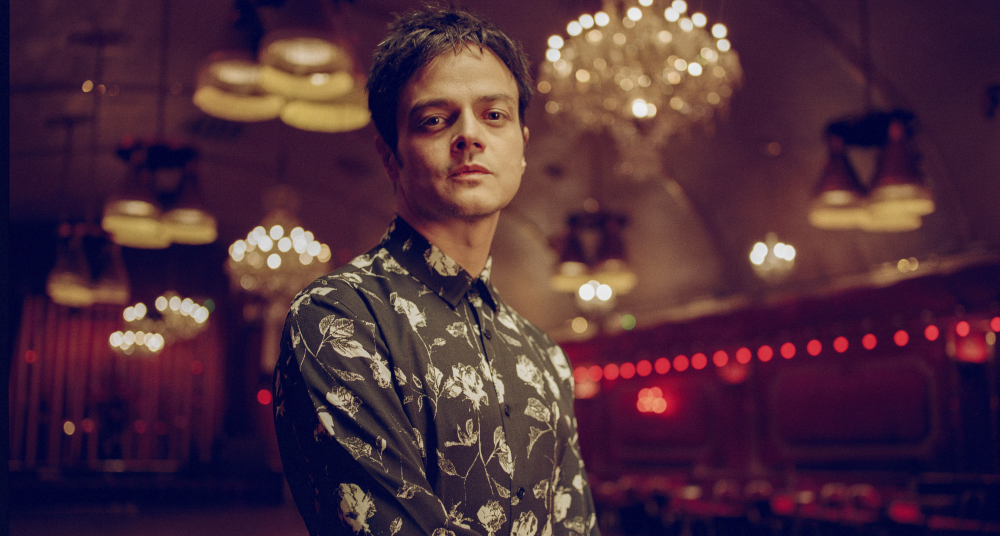Jazz singer-songwriter and multi-instrumentalist, Jamie Cullum, has today won an Ivor Novello Award for his song, The Age of Anxiety.
Cullum made his first television appearance on Parkinson back in 2003 and has since released eight studio albums. His second album, Twentysomething, went platinum and became the No.1 selling studio album by a jazz artist in the UK.
We asked Jamie to talk us through the creation of the track which has seen him receive one of the world’s most prestigious songwriting awards.
‘The Age of Anxiety began as just a title, then a first line and then blossomed out of something totally improvised.
‘Once I had the improvised voice note recording, I started to refine and refine the melody and the lyrics over a period of about one year. I’d had the title The Age of Anxiety in my notebook for a while. I’d probably read it or heard it somewhere, but it struck me as an interesting title because it could relate both to my encroaching middle age as well as an opportunity to look at the increasing levels of anxiety felt by our world on a daily basis.
‘I love a title with a double meaning. I was in a social media meeting and I was advised that in order to grow my fan base I would need to share more of my life online. I said to myself in my head ‘I just want to live inside sometimes’, and the song began. Riffing on that concept with the tape running for about 10 minutes or so.
'I hope it does that thing that songs seem to do rather well which is to be able to hold on to opposite and conflicting points of view and allow them to breathe alongside each other.'
‘I started to write down my own anxieties, real and imagined, without thinking of what the music would be at this stage. As I did this, biographical information brought itself into view; finding old text messages from a dead friend, thinking of my mother arriving as a four-year-old to the UK as a refugee from Burma.
‘Along with the biographical information and my personal anxieties about raising a family, whether I still have a relevant career, moments about the world around me started to arrive; the question of modern masculinity, refugees as part the fabric of this country’s history, outrage culture and much more. I had all these elements fairly separate at first but as I was writing I began to mix them all up and the song became infinitely richer.
‘I hope it does that thing that songs seem to do rather well which is to be able to hold on to opposite and conflicting points of view and allow them to breathe alongside each other.’
'It was definitely one of the songs I felt most proud of as it was finished. Purely from a composer’s perspective. I felt like I had raised my own game a little bit.'
‘I wrote the nuts and bolts of the song at my upright piano at home but a lot of it was written wherever I was in my day. I have a lot of good lyrical ideas first thing in the morning as I’m waking. Whilst the house is still asleep, I will organise those thoughts in my morning brain and wrestle them to life, still in bed.
‘It took a great deal of time, care and attention in a different way to other songs I have written. Whilst the birth of it was very free-form and instinctive, the piecing together of it was slow, intentional and had a lot of redrafting and rewriting within the process.’
‘It was definitely one of the songs I felt most proud of as it was finished. Purely from a composer’s perspective. I felt like I had raised my own game a little bit. I never try to guess whether it will be well-received because I am so often incorrect about that and it is such an inexact science in my opinion. I hoped it would resonate with people, and it certainly does when I play it.'
'I am unequivocally proud of it. Despite the very different world it was written in I think it still feels pretty present in this moment.'
‘The Age of Anxiety has helped me gain confidence in my ability to write songs, it’s not a ‘hit’ in the old fashioned sense, but I hope people will be getting something from it over a long period of time.
‘I am unequivocally proud of it. Despite the very different world it was written in I think it still feels pretty present in this moment.
‘It’s been a long journey for me as a songwriter, as someone who has so often been known as an interpreter of other people’s music, but this song feels like it’s given me good momentum. I can be pretty tough on myself, but you’ve got to write a lot of songs to make a few keepers. This one feels like a keeper.’





